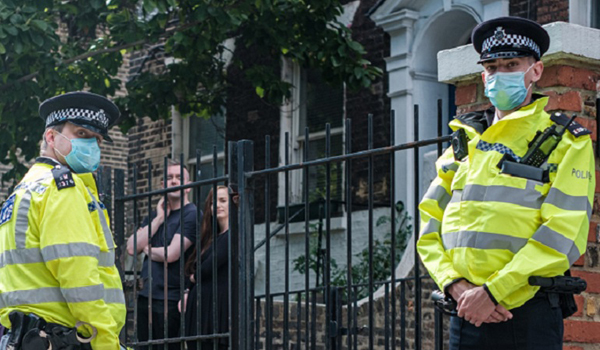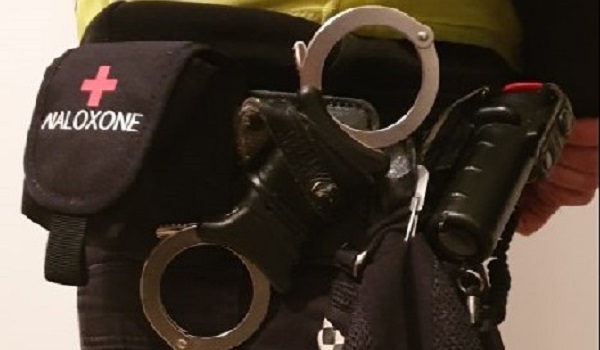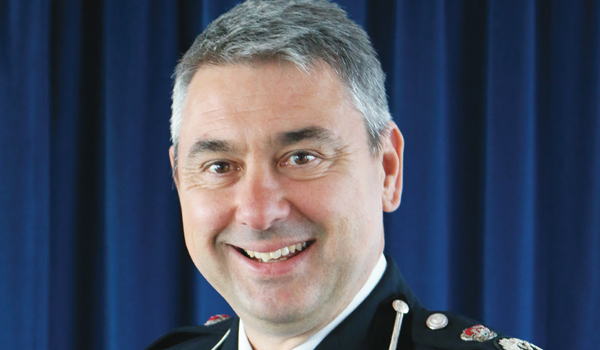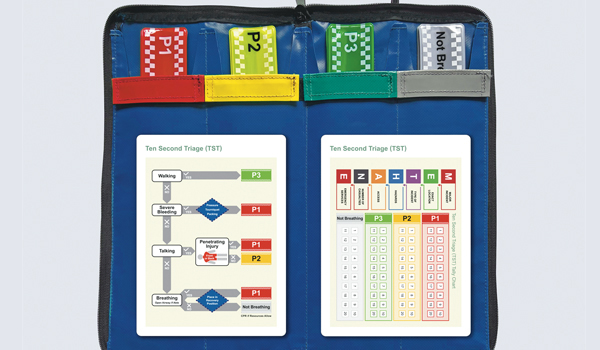Local difficulties for lockdown policing
With news headlines full of examples of the confusion caused by the latest lockdown rules and their enforcement by police forces across the UK, Tony Blockley, Head of Policing at the University of Derby, looks at the dilemma the situation poses for officers when they encounter or respond to reports of rule breaking.
In this world of increasing demand upon our emergency services linked to the current pandemic, the role of the police has been extended even more.
Calls to police about Covid-19 lockdown breaches are rising, while the ‘standard’ demand for police assistance for other incidents and offences is not abating. This has been drawn into clear perspective with the issuing of fines to the public while exercising in Derbyshire, that were later overturned by the force upon review.
This week’s press conference given by the Home Secretary, Priti Patel, and the National Police Chiefs’ Council chair Martin Hewitt, aimed to provide clarity on the subject. But decisions as to what is deemed reasonable behaviour have been left to the police officers themselves, while the public are simply encouraged to do “the right thing”. But what is that?
Checking our moral compasses
The implementation of policing practice is driven through legislation. Laws are created and the public are aware of those laws, with the onus on them to make a conscious decision about whether to abide by them, or not. Ignorance of the law is not a defence.
In 1964, the American legal philosopher Lon L. Fuller discussed the morality of law and our ability to determine what is right and wrong, for the public to make that decision.
In his work ‘The Morality of the Law’, Fuller went onto suggest that a number of elements should exist to realise law, including that “people must be able to understand the law and comply with it”. This, of course, raises some of the challenges we are facing in 2021.
As we know from recent events, such as lockdown parties, illegal raves and the like, our moral compasses are often pointing to different places.
In certain circumstances I am sure that everyone would agree, breaches of the laws are being made; this includes meetings of mixed households, large groups of people coming together for parties or protests, refusing, without legitimate excuse, to wear masks within certain controlled environments, and travelling hundreds of miles to exercise.
These are, I would suggest, relatively straightforward examples of contravening the Government’s lockdown rules. But what about the breaches for walking in your local area, or travelling no more than five miles to exercise?
The guidance and the clarity provided within the Home Secretary’s briefing suggested that the onus of responsibility was on the public and to do what was reasonable, that the rules were clear and we, the public, should do ‘the right thing’, including staying local.
The use of the term ‘reasonable’ and ‘stay local’ are anything but clear. They are open to wide interpretation. What one person may think is local or reasonable may differ from the next person, but who is right? In these conditions, these parameters become almost impossible to police if there is nothing in law or guidance to define what is local or, for that matter, reasonable.
Exercising discretion
It also has an implication for the training and education of police officers. Officers must use their discretion to determine a course of action based on their assessment and evaluation of the circumstances. This in itself is a difficult area, and can lead to accusations of bias, and even discrimination, as we have seen with the issue of ‘stop and search’.
The development of the policing degrees has brought with it a far greater exploration and understanding of the impact of policing on communities, enabling officers to be better informed, to be able to use their discretion in a balanced and fair way that is just and proper. Crucially, they should be able to explain, justify and answer for their conduct.
However, until we have clear definitions and written guidance determining the meaning of words like ‘reasonable’ and ‘local’ while this remains critical to the pandemic response, there will be challenges for policing and, consequently, the Government, which has already found itself criticised from all sides for its response to the pandemic and the policies it has enacted to contain its spread.
Removing grey areas
Cases will occur, publicity will highlight the inadequacies of the guidance and legislation, the public will become more confused, and police officers reluctant to engage for fear of complaints and reprisals.
So, the management of the pandemic regulations will fall to our own moral compass, and we have already established that the arrows are not all pointing in the same direction.
Legislation provides definitions, often borne from case law to provide clarity of those ‘grey areas’. But as the virus spreads quickly and the NHS battles the intense demand it faces from growing numbers of those hospitalised by it, we do not have the time for case law to be determined.
The legislation and guidance need absolute clarity. Firm leadership and the setting of the moral compass from central government will allow everyone to know what is and what is not allowed.
This article first appeared on the University of Derby website. You can read the original article here.






